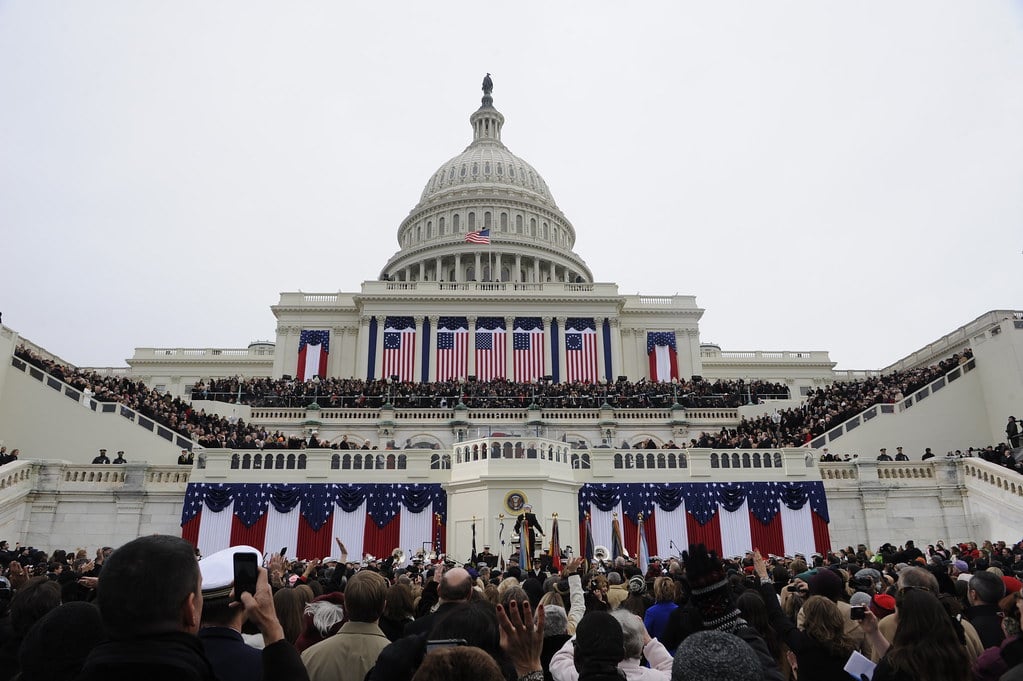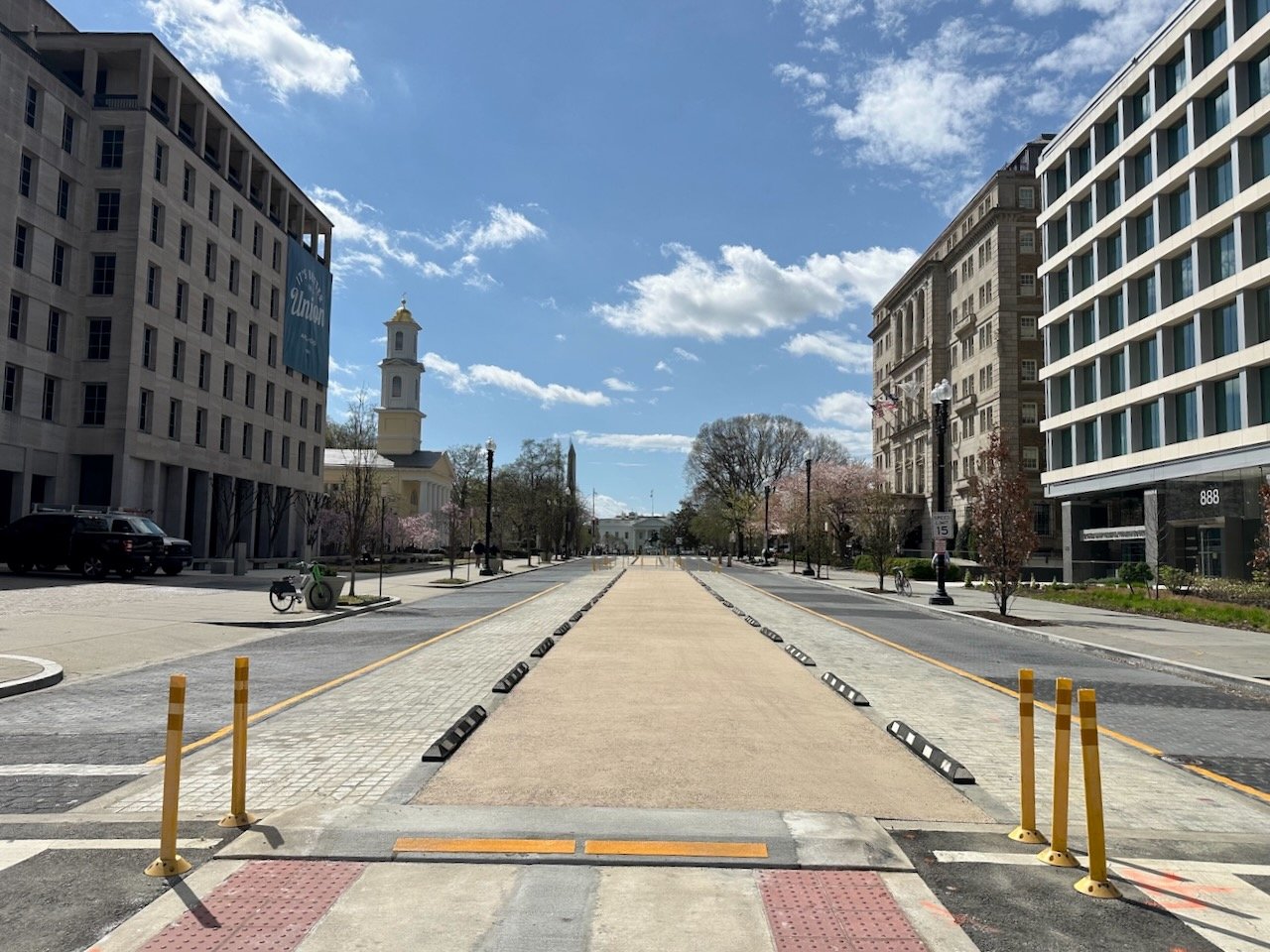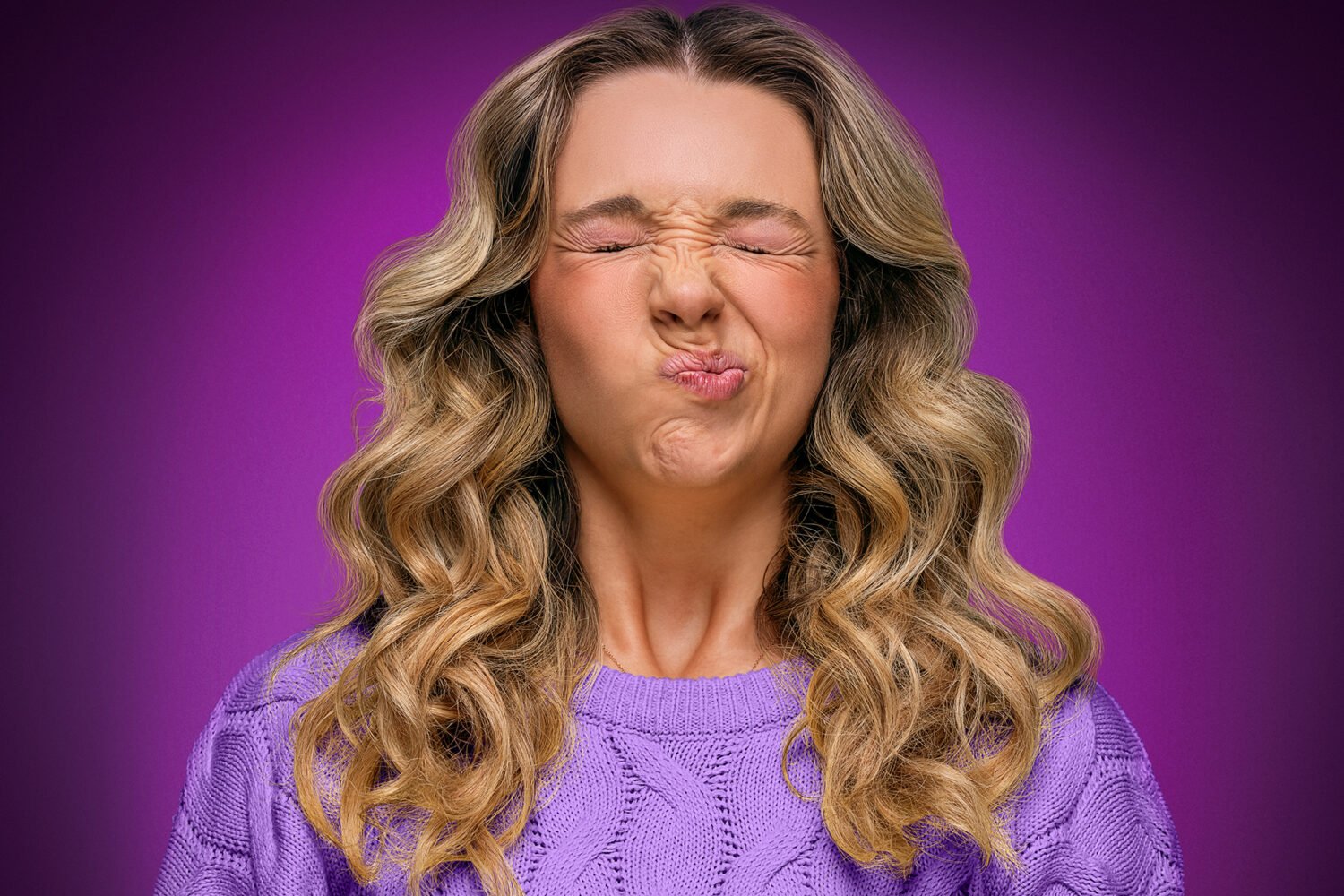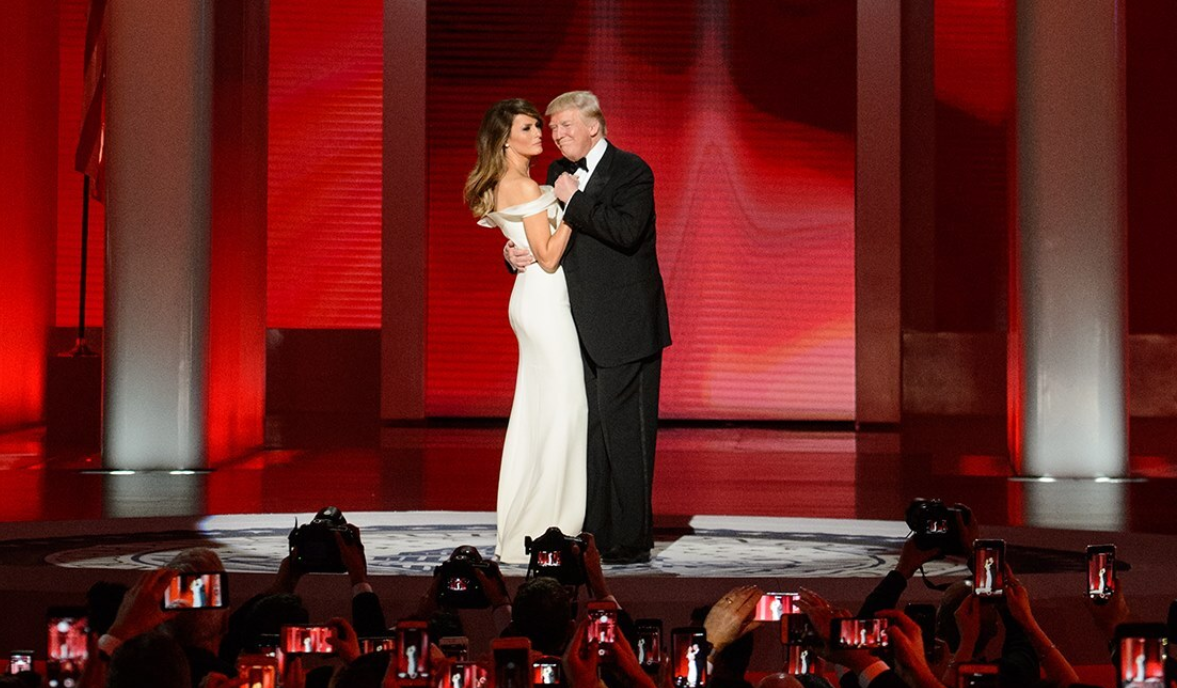America’s presidential inaugurations have a certain predictability about them: Crowds, marching bands, a two-person limousine ride up Pennsylvania Avenue, a new President standing before the Chief Justice to take an oath of office.
For much of the last four years, it’s been hard to picture what an Inauguration Day 2021 might look like—particularly in the event that the quadrennial ritual involves a defeated incumbent graciously ceding power to the winning candidate.
But in pandemic-shaken Washington, the spectacles that looked improbable for political reasons now look difficult for epidemiological ones: It’s hard to imagine would-be spectators cramming into the Metro in order to jam the mall together. It’s harder to imagine party faithful crowding indoor event spaces for inaugural balls (or city regulators allowing such violations of quarantine rules). And, in the event of a transfer of power, it’s possibly hardest of all to imagine any two pols, let alone Donald Trump and Joe Biden, agreeing to coop themselves up in a bulletproof limo for the traditional ride to the Capitol.
But in fact, the work of planning for just that sort of ceremony has been going on since June, when the three Senators and three Congress members who make up the Joint Congressional Committee on Inaugural Ceremonies voted to hold a swearing-in ceremony at its traditional location, the West Front of the U.S. Capitol. Since that time, according to the Associated Press, the Architect of the Capitol has begun building the platform for the ceremony and the National Nuclear Security Administration has dispatched a low-flying helicopter to conduct its normal, pre-inauguration security efforts.
“We are proceeding with planning traditional Inaugural Ceremonies and will adjust accordingly as the circumstances warrant,” says Spring Binsted, a spokesperson for the Joint Congressional Committee on Inaugural Ceremonies. The bipartisan committee is chaired by Missouri Senator Roy Blunt and counts both Mitch McConnell and Nancy Pelosi as members.
But just because they voted to start down the path of a normal inaugural doesn’t mean that’s what’s going to happen. That decision will be up to the inaugural committee of the winning candidate. The congressional committee—which has purview over inauguration activities on the grounds of the Capitol—is simply preparing for a traditional swearing-in ceremony because, as Binsted puts it, “it is more feasible to scale down the plans than it is to scale up.”
“For example,” she continues, “with the resources and time needed, a platform on the West Front would not be able to be constructed for the Inaugural Ceremonies if construction had not started at the end of September.”
So will this year’s festivities include the usual big crowds, parades and dignitaries? We’ll have to wait until the ballots are counted to find out. According to Max Stier, president of the nonpartisan Partnership for Public Service, the way in which the two candidates have campaigned provides a window into how they might organize an inauguration in the Covid era.
“President Trump’s been doing mass rallies and Joe Biden’s been doing car rallies,” Stier says, “so I think the sensitivities around the [covid] risks that are created here are going to drive choice differently by the two different candidates.”
Binsted said the congressional committees was taking a “layers of safety approach” to Covid precautions for any potential inaugural ceremony, but she would not specify which precautions would be implemented.
Local officials, of course, would also have a role to play in a 2021 inaugural ceremony.Passengers took 570,557 trips on Metro on Inauguration Day 2016.But this year, according to WMATA spokesperson Sherri Ly, it’s less clear how many additional riders the transit system will be handling.
“Metro began the planning process for Inauguration a few months ago with internal meetings and other long-range preparations,” Ly says. “However, as with other aspects of daily life these days, much is uncertain — and that includes attendance projections (or ridership expectations) for a day more than two months in the future.”
A spokesperson for Muriel Bowser did not respond to inquiries about how DC’s mayor is preparing for a 2021 inauguration.


![Luke 008[2]-1 - Washingtonian](https://www.washingtonian.com/wp-content/uploads/2017/10/Luke-0082-1-e1509126354184.jpg)
















